help.sitevision.se always refers to the latest version of Sitevision
Permissions
One of the many advantages of SiteVision is the ability to permission control content and parts of the editor. Permissions are assigned to a user by using roles. A role consists of a number of rights. Here you can find out about the different rights and what they mean.
General
The rights under the General category govern overall functions. Here you set, for example, whether a user is allowed to access the editor, write, delete, and publish.
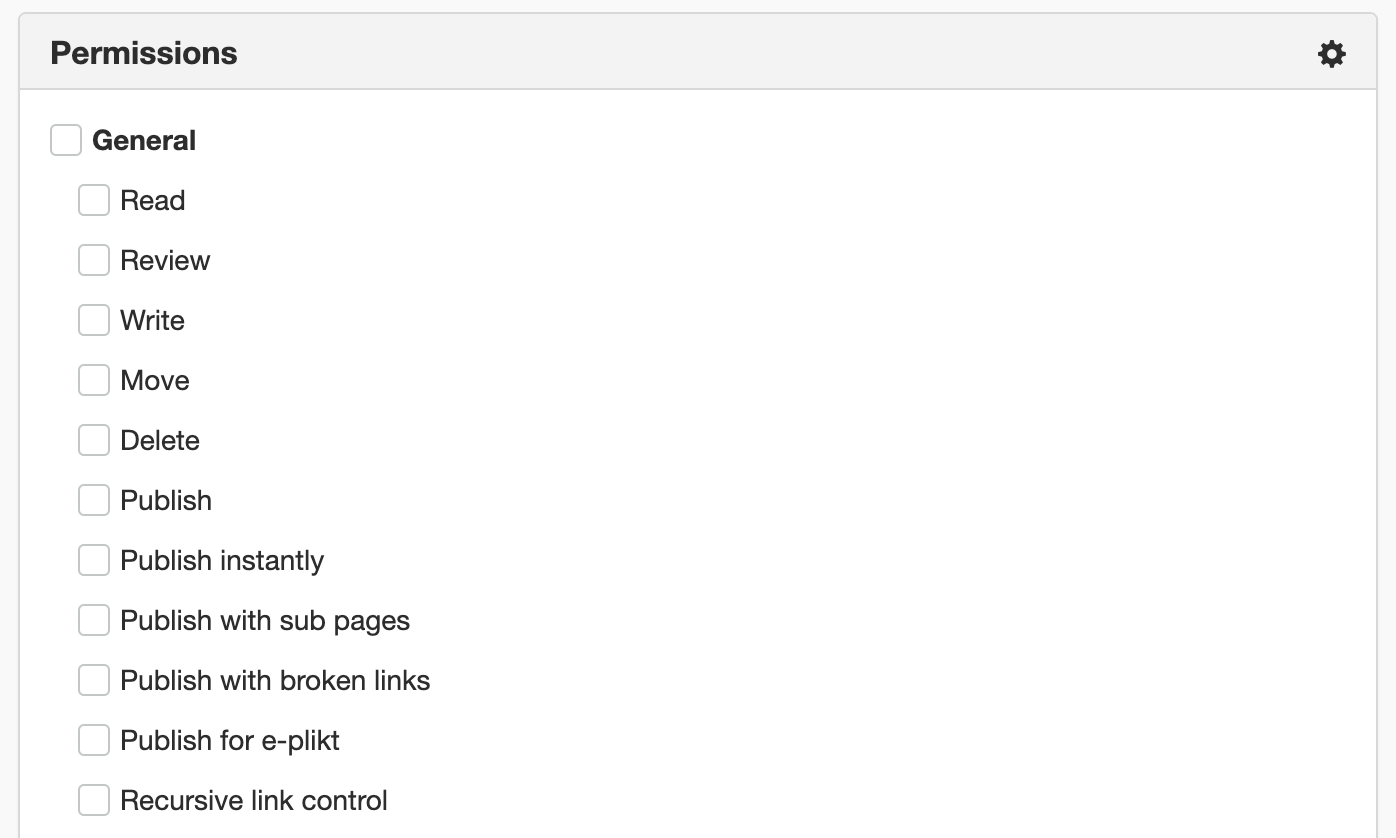
Show
The rights under theView category controls the menu for the navigator, that is, which structures in the editor the user will be able to access. The rights do not mean that users are allowed to create items. This requires rights from the Create category.

Create
The rights under the Create category control what type of items users are allowed to create. This category also includes the rights to add layouts, linked layouts, and responsive parts.
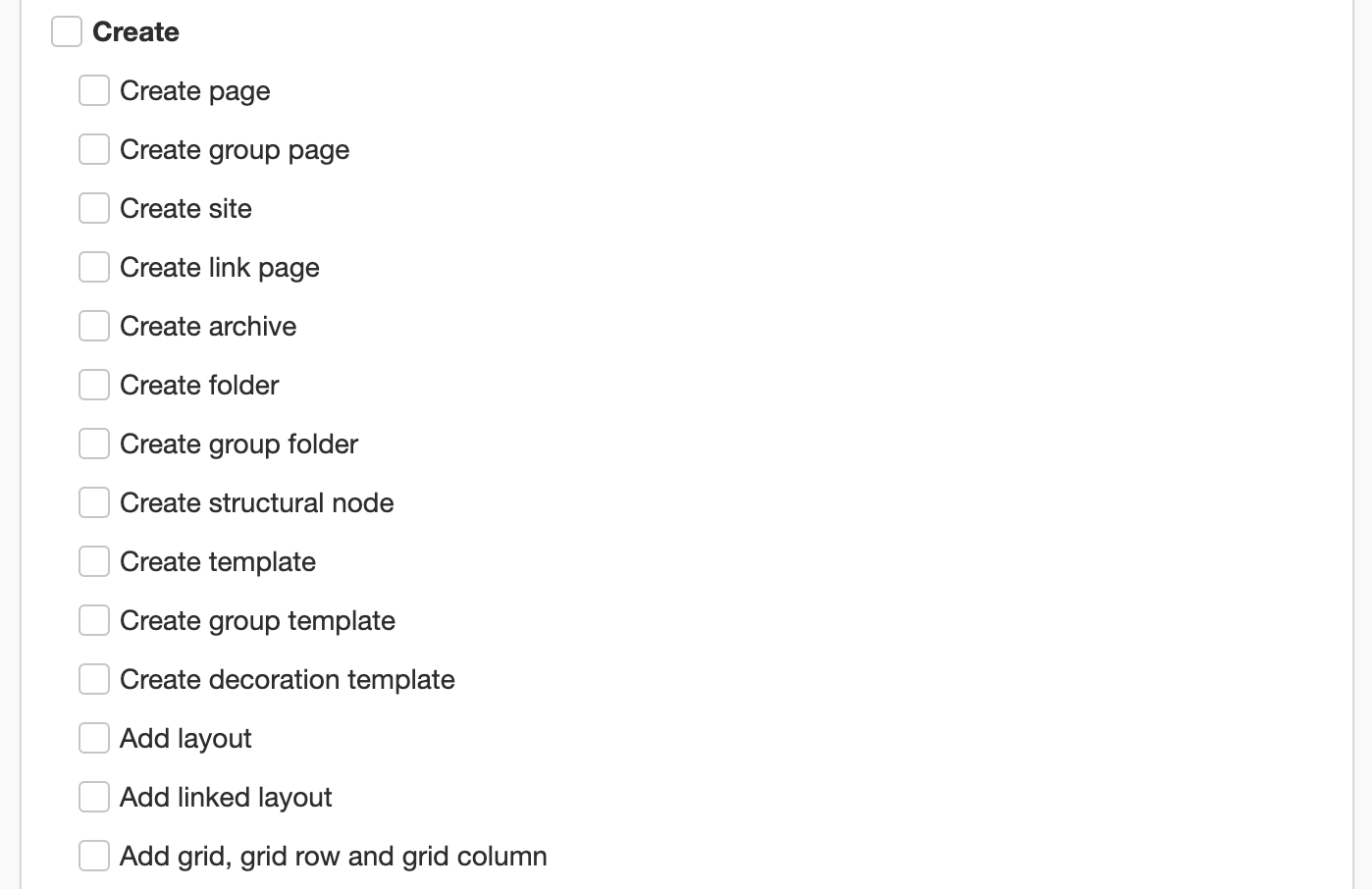
Appearance
The rights under the Appearance category control the appearance changes users are allowed to make in, among other things, image, text and table modules. The category also includes several rights that are global and affect the appearance of the entire website. Those rights depend on the Manage Website Settings right.
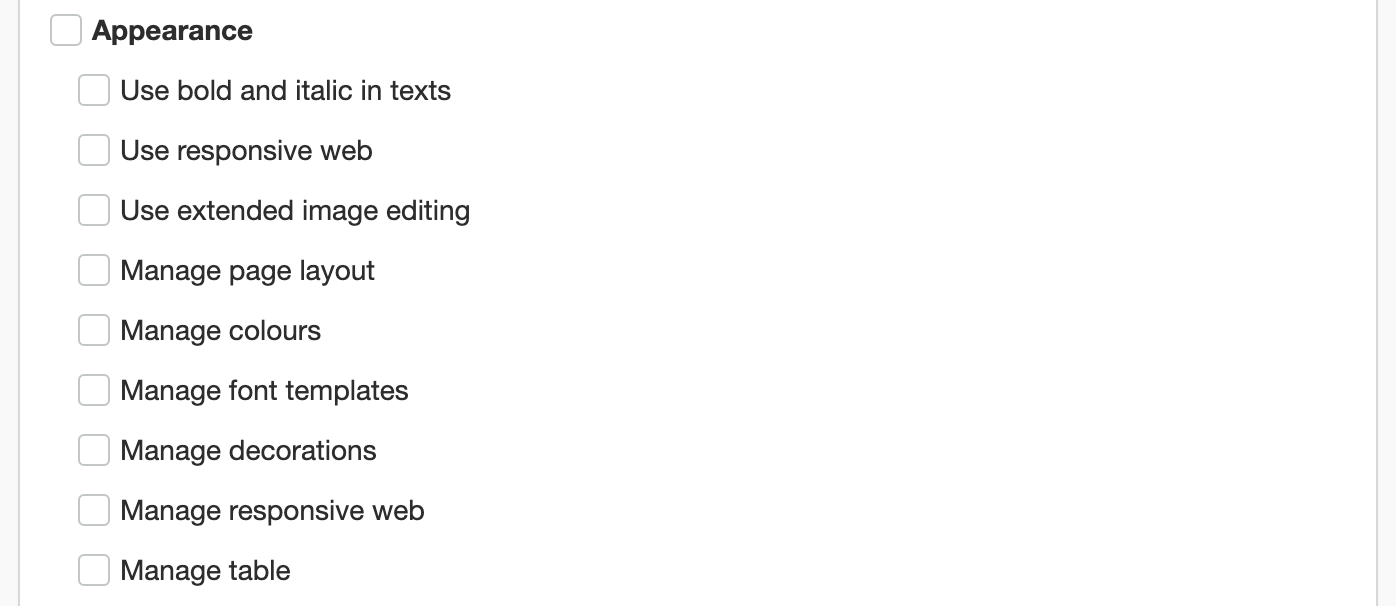

Administration
The rights under the Administration category control both higher rights such as export/import and license management, as well as the ability to unlock page and publishing locks. In this category you will also find the right to manage elements and add-ons, manage AB tests and HTML export, as well as functions for developers.
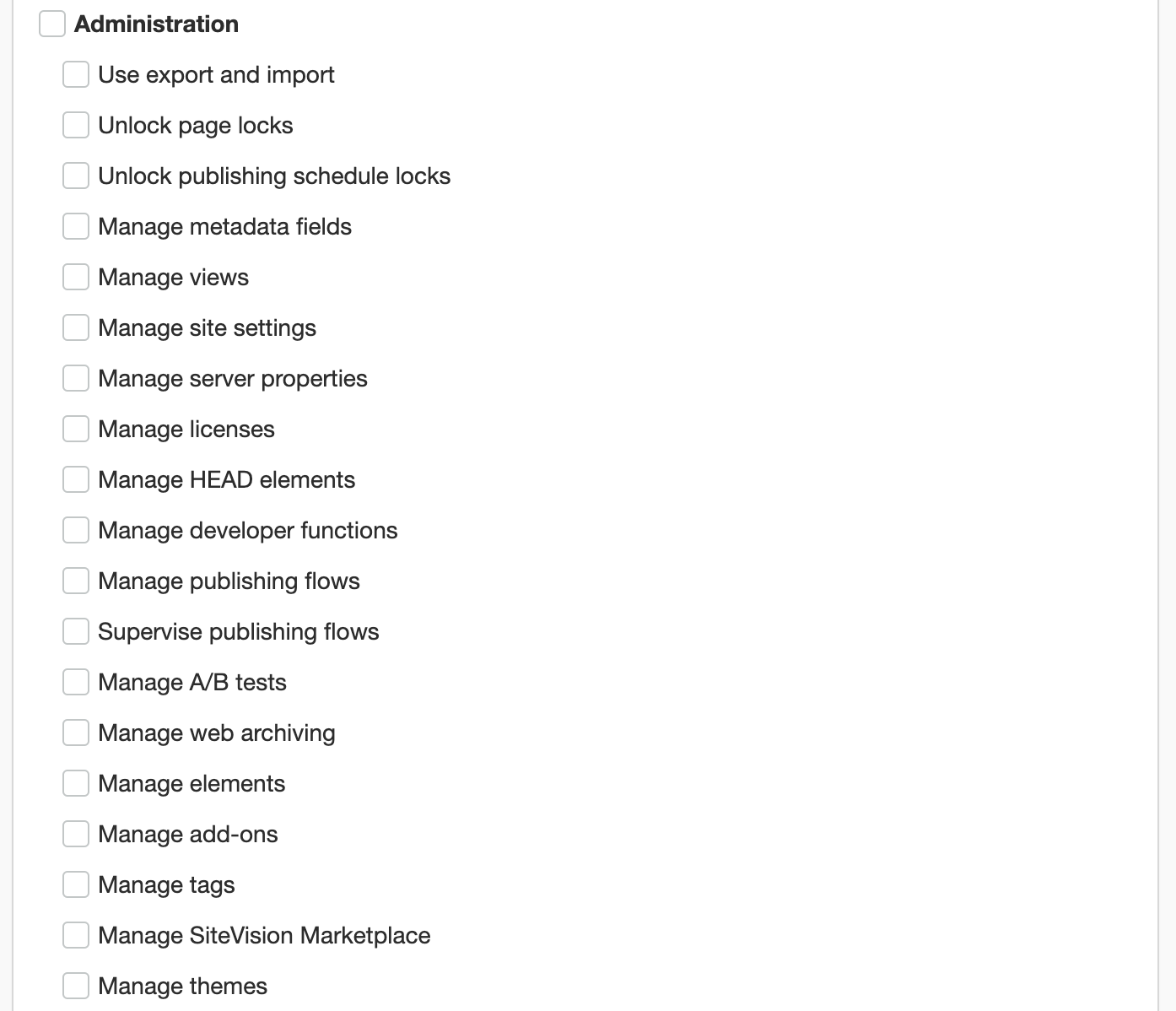
Security
The rights under the Security category control the management of users, rights and permissions, and whether the page or website should be made public or not.
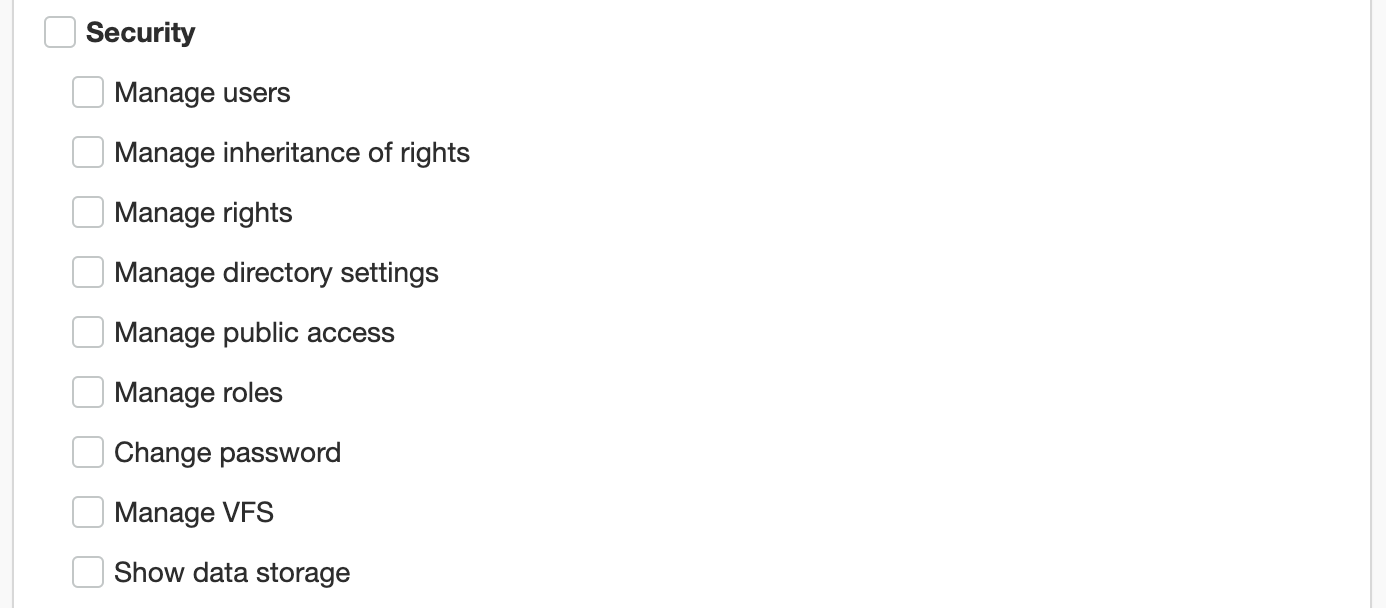
Search
The rights under the Search category control settings for the search function in SiteVision.

Collaboration
The rights under the Collaboration category control functions for Social Collaboration. The rights are divided into two roles Group Administrators and Group members. The rights require the Social Collaboration license.
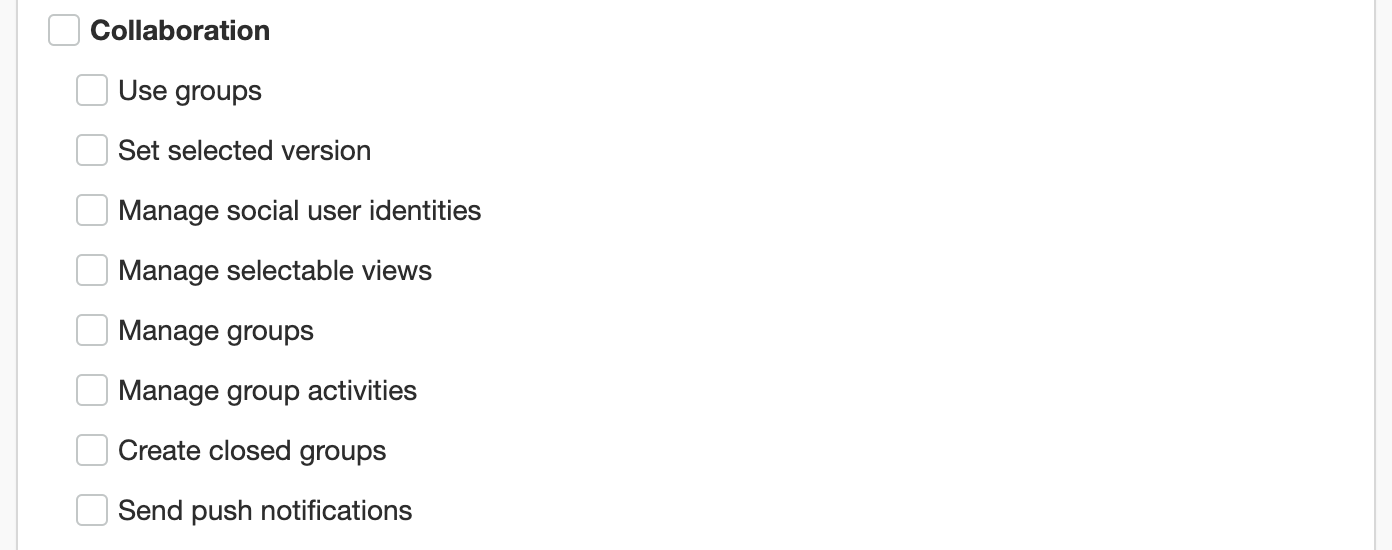
The page published:

 Print page
Print page